- Our Mission

Reimagining Study Hall to Promote Student Goal-Setting
Teaching executive functioning strategies and offering students choices helps foster their sense of ownership of their learning.

When I was in middle school, study hall was my favorite period of the week.
Though it was pitched as a quiet time to catch up on homework, it was really the opposite. With minimal supervision, it was our version of Lord of the Flies —an oasis in the school building where students ruled and any semblance of focus vanished.
Years later, when I became a middle school teacher, the first school at which I taught had a starkly different approach, demanding that their students be absolutely silent. The slightest squeak was disciplined to keep the environment distraction-free.
The problem, though, was that this environment was actually quite distracting—a simple clearing of the throat would draw the group’s gaze. While there’s merit in setting aside time for students to work on assignments during the school day, educators shouldn’t be relegated to the role of zookeeper or reduced to mere disciplinarians. This is where the WIN approach comes in.
WIN: ‘WHAT I NEED’ TIME
I implemented What I Need (WIN) time as a dedicated one-hour session that occurs weekly and offers students opportunities to reflect on their needs and set purposeful goals like working independently, collaborating with other students, or conferencing with teachers.
Students might spend the period taking a test they missed, consulting with a teacher about lingering questions, or working on a group project, eliminating the hassle of weekend meet-ups.
WIN also encourages students to pursue passions beyond academics. A dedicated student athlete might practice field hockey reverses on the field while a peer dives into Python programming or practices mindful breathing.
However, WIN’s value lies in intentional structure, not unbounded freedom. The session comprises seven sequential, interconnected components, each of which advances the period’s purpose.
GETTING STARTED
Each WIN period begins with the full middle school—students and faculty—gathering for a 10-minute lesson on executive functioning (EF) that I lead alongside our learning support teacher.
We adapt our content based on classroom observations, occasionally addressing other topics like digital citizenship or email etiquette. Our goal is to provide strategies for navigating learning challenges. Instead of prescribing a “right” way, we offer various methods, allowing students to discover what resonates, acknowledging that there isn’t a one-size-fits-all solution.
Each presentation starts by revisiting content discussed in previous weeks. From there, we dive into the week’s lesson—designed to be a component of a broader, three-to-five-week topical module (on prioritization, for example). This structuring ensures a consistent narrative across lessons.
IDENTIFYING NEEDS
Next, students and faculty head to their advisory locations. Advisers guide students through that week’s WIN slide deck, which includes a list of teachers available during the period, their locations, and a review of our “Who I Need” sheet—a Google Sheet on which teachers list, in the days between WIN periods, students with whom they wish to meet, the expected duration of the meeting, and its urgency. This setup ensures that if a student is requested by multiple teachers, they can prioritize and schedule their time.
Informed by the sheet, students complete a goal-setting form, identifying what they’ll do during the period, why they’re choosing to spend their time this way, how much time they anticipate spending on each facet of their goal, and what resources they’ll need.
IMPLEMENTATION
Students sign out with their adviser; using a tracking sheet, advisers document where students are going, with whom, and when they anticipate returning. This live document includes a tab for each adviser and allows us to monitor students’ whereabouts.
Students spend the next 40 minutes following through on their plans—from meditation to math practice. They return with five minutes to spare and complete a reflection form that asks whether they met their goal. If so, it prompts them to consider what strategies they might employ in the next WIN period. If not, it asks them to consider alternative approaches for future sessions.
This process serves as a nonpunitive, nonevaluative chance for students to hone self-reflection skills.
Involving Parents
In middle school, it’s not uncommon for students to become less communicative with their parents. Often, when asked about what happened in their day, their response might be a simple grunt or dismissive “Nothing.” We recognized that WIN time presents a unique opportunity to give parents insight into what students are learning, so we initiated “WINning Ways Weekly,” an email distributed during WIN time that gives parents a snapshot of what topics and activities we covered.
We also share a “Dinner Table Prompt” that parents can use to talk with their kids about what they learned in WIN. Prompts encourage parents to share their own experiences with topics like managing tasks, discerning priorities, and taking notes.
Our goal is straightforward: We want to help parents understand what’s happening in the classroom so they can better support their child’s learning journey.
A WIN-ning Impact
We envisioned a study hall that balances student autonomy and learning. To see if we succeeded, we conducted a student survey at the end of our first year implementing WIN: 92.6 percent of students reported that WIN helped them achieve an academic or personal goal; 95.5 percent reported acquiring a new executive functioning tool; and 97 percent felt that WIN had alleviated stress related to schoolwork.
Yet the influence of WIN extends beyond what we quantify in a survey. The impact of WIN is a vibe. It’s something palpable that you can feel around the middle school. Students are diving in, taking charge, and feeling more in control of their workload.
WIN time isn’t just another slot in the school day; it’s changing the learning culture of our middle school.

HOW TO RUN A STUDY HALL
Yes, it is possible to have a study hall which is absolutely quiet, even in your absence.
I remember study halls well. That’s where I discovered girls. I also discovered practical jokes. Some teachers were so completely unable to control us that we had to be careful not to make so much noise that the principal would come in. Other teachers did a better job, but they had to hover over us us like hawks. Nevertheless, all sorts of sneaky pranks would go on behind their backs or under the desks.
Study halls are typically buffers in the schedule. What do you do with the kids who aren’t taking band or French or whatever? You put them in a study hall, of course. Worse, study halls often collect those kids who are not academically inclined and/or have been removed from a class because their behavior was intolerable. Given all that, is it any wonder that teachers dread study halls.
Elsewhere in bethebestteacher.com , it has been pointed out that a great many kids, perhaps the majority, don’t have a suitable environment in which to study. Three quarters of mothers of kids under 18 work. Many of these won’t be home in the afternoon or early evening to enforce rules conducive to study. Many will study in the kitchen surrounded by the hubbub of family life. Others will study in front of the television or tethered to their iPod. Some will even do their homework while talking endlessly on their cellphones. Given that atmosphere, we could almost argue that a study hall could be one of their most important classes.
A study hall should be absolutely quiet. There should be no distraction whatever, save the occasional student going to use the pencil sharpener. Students should be doing their homework. For the teacher, it should be a time when he can grade papers, work on lesson plans, even leave the room. Yes, it is possible to have a study hall which is absolutely quiet, even in your absence. I’ll tell you how.
Go to “ Teaching Tactics for Study Hall “
Permanent link to this article: https://bethebestteacher.com/how-to-run-a-study-hall
- Teaching Tactics for Study Hall
The foundation for successful classroom management (in a subject class) is respect for the teacher and for the importance of learning. You gain that respect in your class by being serious about teaching your subject. Your class period is filled with obvious learning activities. There is an expectation for learning. There is simply no time …
- Promised Consequences Must Be Applied
Now comes the hard part. No matter how emphatic you were or how convincing you think you sounded, nothing matters until you show a willingness to enforce your rules. You must sit at your desk and watch every movement of every student. The first time a student looks up from her work, she will be …
- susan on September 22, 2021 at 1:57 pm
I love all your workable ideas and am using them in my study hall/independent college learning classes which I run all day…..thank you. I just returned from two weeks of quarantine and feel like I am starting over with my my youngest and most challenging class, but that is OK….so far none of my students have wanted to do the Written Assignment I have for them, so that is to the good…but I will have to tighten up a bit after being gone so long. Again thank you for concrete, adaptable solutions that inspire the students to do better and be better. Sincerely, A Teacher
- susan on October 15, 2021 at 11:40 am
adhd student is in study hall with his girlfriend, constant interaction, many conversations, I feel like this is a losing power struggle on my part…..suggestions to end this? The entire class is 9th grade students except this student who is a junior. Move his seat away from his girlfriend and other students…..my resolve feel weak. How do you deal with a problem, when you aren’t sure what the problem is…..ie. if I move him he will create another problem? Or am I weak kneed because he never takes NO for an answer. Always, why can’t we do …….? Thanks!
- susan on October 15, 2021 at 11:41 am
One student is a problem, always, how to tighten up?
Leave a Reply Cancel reply
Your email address will not be published.
Thoughts, Rants, Opinion and Your Input
- Why Do Teachers Get Such Lavish Pensions?
- The Case Against Teaming
- Zero Tolerance Policies
- A Good Spanking is What He Needs
In this section
Topic links.
- INTRODUCTION
- The First Day
- A Lesson from Summer Camp
- You’re Not In Control — Yet
- The Non-Judgmental Stare
- Now You Are Their Teacher
- Your First Lesson Plan
- Should You Start Off Hard Or Easy?
- Summary of the First Day
- Lesson Plans
- Learning Objectives
- Tell Them What the Objectives Are
- Variety and Timing
- Be a Spellbinder
- Summary of Lesson Plan Points
- Steps Toward Success
- Praising Your Students
- Teaching Tactics
- Class Discussion
- Individual Seat Work
- Group Activities
- Video Presentations
- In Class Studying
- Extra Credit
- Managing Your Classroom
- The First Few Weeks
- Correcting Students
- Your Sense of Humor
- Handling the Extroverts
- Don’t Become Too Lax
- Why Test At All?
- Constructing Essay Tests
- Constructing Matching Tests
- Constructing Short Answer Tests
- Constructing True or False Tests
- Constructing Multiple Choice Tests
- Student Scored Tests
- Grading Tactics
- Norm-Referenced Grading
- Criterion-Referenced Grading
- Grading Recommendations
- Discipline Considerations
- The Disruptive Student
- Behavior Modification for Individual Students
- Consequences
- When To Quit
- Why Confer At All?
- The Home Environment
- Giving Advice to Parents
- The Angry Parent
- The Quiet, Productive Study Hall
- About me — Contact us
- We welcome any feedback or questions not appropriate for the Comments box.
- Questions/Comments
- Leave This Field Empty
Content Copyright 2011 by Peter Eric Holden Except where otherwise noted, theme is licensed under a Creative Commons Licence.
Made with by Graphene Themes .

Are Study Halls Effective?

The Effectiveness of Study Halls (Now updated with new information!)
What are study halls.
Younger children may not have experienced a study hall yet as they usually occur when a child transitions to middle school , so let us first take a moment to understand what a study hall class is. Basically, schools set time periods aside for students to do school work independently or receive help on homework. For example, students with a 7-period class schedule would only have 6 classes scheduled, and the empty slot would be a study hall.
During this time, students remain in a certain room, or maybe even a library, where they are meant to get some of tonight’s homework out of the way, study for an upcoming test, or take a makeup test. Sometimes, students can get special permission to use the library or a computer lab to find books, research for a project, or write a paper. Meaningful homework is beneficial for student growth, so study halls are meant to help students have more time to get these assignments finished. In fact, a study surveyed middle school parents and found that over two-thirds of the parents listed “not enough time” or “extra-curricular activities” as the reason that homework could not be completed!
What types exist?
Each school will run a study hall differently, so be sure to talk to your child’s teacher or principal. Even so, let’s begin by splitting up our understanding of study halls into two types: unstructured and structured.
Unstructured
This is the study hall that has been common for many years, and it offers independent time to work on assignments. (Or, at least, it’s meant to…) Whether the students actually complete school work during this time is the main issue that has been bringing the classic, lightly supervised study hall’s effectiveness into question.
Structured study halls have more specific outcomes and goals. The basis of structured study halls is that students are unable to complete work because they are overwhelmed, have poor time management, and lack inner motivation.
Frequently, teachers are available to help with difficult homework assignments or concepts that were just not fully understood in class. Some schools even have special tutors assigned to study halls to assist with whatever struggles a student may have. These types of study halls are important; one study showed that about a quarter of middle-school parents in a school said homework was not completed because no one at home could understand and help with the assignment.
Are there alternatives?
Some schools implement “floating” study halls, where the availability of study halls depends on what teachers and subjects assigned homework that day. There’s even been a recent move away from homework itself by some school districts, meaning that students aren’t needing that study hall time for homework. Sometimes, schools replace these with learning labs or advisory periods .
Learning Labs
Learning labs let students use this time to work with teachers or specialized tutors. It may be in the form of math labs or literacy labs. Students may go regularly for a learning need or on a less regular basis for extra instructional help. These learning labs may rotate days or teachers, meaning students would go to a certain learning lab on a certain day to get help with that teacher’s subject. This is beneficial for keeping teachers instructing in their area of expertise. It allows for better utilization of time and resources.
Advisory Periods
Others are taking out daily study halls and adding in advisory periods. These periods increase teacher-student interaction. They are designed in a way that helps older students navigate the demands of school by discussing learning goals and encouraging self-reflection. These periods may be shorter (20 to 30 minutes), but they increase intrinsic (inner) motivation and help students become more self-directed. This combats kids not doing homework in study halls by going to the root of the problem. Sometimes, schools combine these periods with floating or static (unchanging, independent) study halls or rotating learning labs. This superintendent designed an effective advisory system, which you can read about here .
What are some examples of study halls?
This school in California is an excellent example of how structured study halls can work. The principal was concerned about the large proportion of missing homework assignments he saw. First, he increased parent and teacher involvement. He put the counselor in charge of communicating with parents and assigned teachers to before- and after-school study sessions. To collect data, he hired a part-time employee to enter information about students’ homework completion. Within a few months, average GPA rose by half a point, honor roll students increased from 32% to 50%, and teacher moral significantly improved.
Another example comes from a school in D.C. that tried a different approach. First, the principal ensured students had a designated room for study halls. This decreased cases of wandering, disruptive students and seniors leaving campus during their free period (often resulting in tardiness to their next class). Next, they asked students to participate in more meaningful work. Some commented on ways they could improve their study hall, or even their school. Others published articles on the school’s website, and many others worked with other students or a tutor on difficult assignments. This led to a burst in productivity among students, and even the beginning of a school newspaper. Both teachers and students were much more satisfied with the outcome.
Are study halls effective?
Study hall effectiveness varies a bit based on how the study hall is conducted. I strongly recommend speaking with your school’s administration regarding what study halls look like in your district. If your child requires special attention or extra motivation, it can most likely be arranged through his or her teacher.
Many people question the traditional form of study halls as we know it: an unstructured, lightly supervised period of time for independent work. As a high school student, one over-worked teacher supervised over 50 children in my cafeteria study hall. This teacher was unable to help with homework, and not all students could be kept quietly working. Based on research, recent educational developments, and general attitudes, it is clear that the unstructured study hall is becoming (or should become!) a thing of the past.
In the research I have done for this article, I can say with confidence: a structured study hall does wonders.
How do I get a structured study hall in my child’s school?
If you don’t already have structured study halls in your child’s school, there is still hope. There are several ways you can get involved in your child’s school to help make this change.
Try attending a PTA meeting and making the suggestion. Come prepared by checking out the links in this article and the two examples I cited above. A quick search will bring up other scientific studies that show the positive effects of a structured study hall.
You can also try bringing it up at the next parent-teacher conference. Given the positive effects study halls have on faculty, too, your child’s teacher very well may be on board. He or she may even help you get other teachers involved.
Finally, you can speak with the principal and/or write a letter to the school board. Emphasize the low cost for implementing such a program and the benefits it could bring to the district. It will be tough for an administrator to turn down an opportunity to improve student performance at such a small price.
Have you seen benefits of your child’s performance in a structured study hall? (Sometimes, students may need a little extra help building these learning and studying skills through an enrichment program !) What do you think about the change in study halls and homework? We’d love to hear from you in the comments below!
Authors: Victoria Kerns, Teacher at A Grade Ahead; Brenna Waugaman, Writer and Teacher at A Grade Ahead
Get Notified When New Articles Post
Sign up to receive one email per week from A Grade Ahead full of parenting tips and helpful articles. Enter your information on the right hand side of our Blog page and we will add you to our list of subscribers. We also welcome your feedback and comments on our posts!
3 responses to “ Are Study Halls Effective? ”
I am interested in the sources that you consulted in your research. I am currently in discussion as to the appropriate timing of study halls in a middle school setting and am running into a lack of good research on the topic and am hoping you might be able to provide some leads. These are structured study halls, but my contention is that the younger students would benefit more from being able to touch base with their homeroom teachers later in the day, not only in being able to review all the homework assigned for the day, but to have help organizing tasks for completion. Any help you can provide would be wonderful!
Here are some of the sources used for the article:
http://www.educationworld.com/a_admin/admin/admin347.shtml http://www.ascd.org/ascd-express/vol8/822-alzakari.aspx http://files.eric.ed.gov/fulltext/ED501250.pdf
I hope that helps!
I see that you were looking for research on study halls. I am also looking for more research information on study halls. The district I work for is looking at a static study hall, a floating study hall, and a rotating study hall. I want to find research on all three options if possible. Any help you can provide is appreciated!
Leave a Reply Cancel reply
Your email address will not be published. Required fields are marked *
Save my name, email, and website in this browser for the next time I comment.
- College Applications
- Hands-on Activities
- Infographics
- Find your nearest academy
- Privacy Policy
- Terms & Conditions
©2021 A Grade Ahead, Inc. All Rights Reserved.
Find your local academy
You are not eligible for the enrichment at home program., but there is good news.
You are close to A Grade Ahead of Powell Enrichment Academy.
Call today to schedule an assessment, or stop in to see how our small classes and educated teachers can help your student reach his or her goals. 10202 Sawmill Parkway Powell, Ohio 43017, USA 614.790.1111

Transforming Study Hall into a Catalyst for Student Goal-Setting
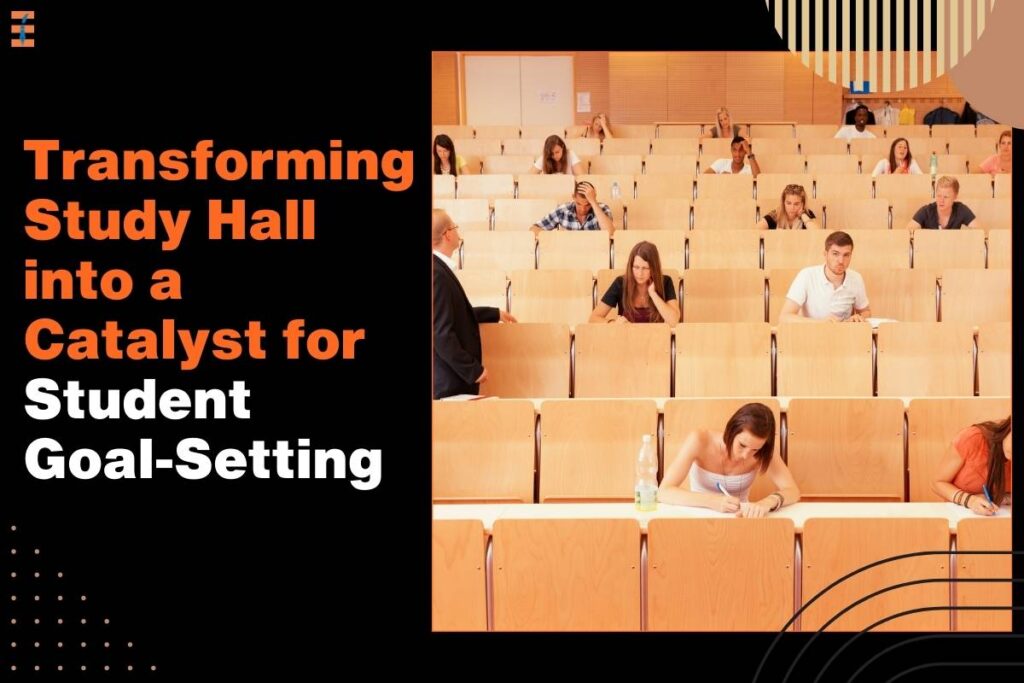
Study hall has long been a staple in educational institutions, offering students dedicated time to complete assignments, review materials, and seek additional help. However, reimagining study hall as a powerful tool for promoting student goal-setting can lead to enhanced academic success and personal growth. In this article, we’ll explore the concept of goal-setting in study hall and provide strategies to make it an integral part of a student’s educational journey.
The Power of Goal-Setting
Goal-setting is a transformative practice that empowers students to take ownership of their learning and personal development. It’s not merely about setting objectives; it’s about creating a roadmap that guides students toward their aspirations.
- Motivation: Setting clear goals provides students with a sense of purpose, motivating them to stay focused and committed to their studies.

- Accountability: Goals create a framework for students to monitor their progress and hold themselves accountable for their actions and outcomes.
- Direction: Goals act as a compass, guiding students toward their desired destinations and helping them make informed decisions.
- Self-Efficacy: Achieving goals boosts a student’s confidence and self-efficacy, reinforcing the belief that they can overcome challenges and succeed.
- Personal Growth: It promotes personal growth by encouraging students to push their boundaries, acquire new skills, and develop resilience.
Reimagining Study Hall
Traditionally, study hall has been perceived as a time for silent work or supervised homework completion. However, transforming this period into a platform for goal-setting can maximize its impact on student development.
Here are several ways to reimagine the study hall:
1. structured planning.
Incorporate dedicated time for goal-setting and planning. During study hall, students can identify short-term and long-term objectives, set priorities, and create actionable plans.
2. Mentorship
Assign mentors or educators to guide students in the goal-setting process. These mentors can offer advice, help students refine their goals, and track their progress.
3. Resource Center
Provide students with access to resources, both digital and print, that can assist them in goal-setting and research. This may include books, articles, or software related to personal development and study skills.
4. Collaborative Work

Encourage peer collaboration. Students can work together to brainstorm and refine their goals, sharing insights and strategies that may be beneficial.
5. Feedback Loops
Create a feedback loop where students regularly assess their goals’ progress and adjust their plans as needed. This allows for flexibility and adaptability in the face of challenges.
6. Inspiration and Motivation
Decorate the study hall environment with motivational quotes, images, and success stories to inspire students in their goal-setting journey.
Strategies for Promoting Goal-Setting in Study Hall
To make goal-setting a meaningful part of the study hall, educators can employ various strategies.
Here are 10 strategies for promoting goal-setting in study hall:
1. goal-setting workshops.
Organize workshops that introduce students to the concept of goal-setting, emphasizing its importance for personal and academic growth.
2. SMART Goals
Teach students the SMART criteria for setting goals – Specific, Measurable, Achievable, Relevant, and Time-bound. These criteria provide a structured approach to goal-setting.
Related: Setting SMART Goals: A Blueprint For Student And Teacher Success
3. Individualized Plans
Encourage each student to create personalized goal-setting plans tailored to their unique aspirations, strengths, and challenges.
4. Goal Visualization
Use creative exercises like vision boards or guided imagery to help students visualize their goals. Visualization can enhance motivation and commitment.
5. Goal Tracking Tools
Introduce students to tools and apps that can help them track their progress and celebrate their achievements.
6. Regular Check-Ins
Schedule regular one-on-one or group check-ins to discuss students’ goals, progress, and any obstacles they may face. This provides an opportunity for support and guidance.
7. Celebrating Achievements
Recognize and celebrate students’ achievements, whether big or small. Positive reinforcement reinforces the importance of goal-setting.
8. Goal Journaling
Encourage students to keep journals where they record their goals, progress, setbacks, and reflections. Journaling can provide clarity and self-awareness.
9. Peer Accountability
Implement peer accountability systems where students check in with one another to review their goals and offer support.
10. Public Sharing
Provide opportunities for students to share their goals and achievements with their peers, fostering a sense of community and encouragement.
Examples of Study Hall Goal-Setting
- Time Management Goals : Students can set goals related to time management , such as allocating specific time blocks for studying, minimizing distractions, or meeting deadlines.

- Academic Achievement Goals: These goals may include improving grades in specific subjects, mastering specific topics, or achieving a particular GPA.
- Personal Growth Goals: Goals related to personal development, like improving study habits, building self-confidence, or enhancing communication skills .
- Extracurricular Goals: Students may set goals for their involvement in extracurricular activities, such as joining a club, participating in sports, or volunteering.
- Career and College Goals: Goals about career and college readiness, such as exploring potential careers, building a strong resume, or preparing for college applications.
- Health and Well-being Goals: Encourage students to set goals for physical and mental health, including exercise routines, healthy eating habits, and stress management.
- Social and Emotional Goals: These goals focus on building strong relationships, empathy, and emotional intelligence.
Benefits of Promoting Goal-Setting in Study Hall
- Improved Academic Performance: Students who set academic goals tend to perform better, as they have a clear purpose and direction.
- Motivation: Goal-setting motivates students to strive for excellence and overcome obstacles.
- Personal Development: Goal-setting fosters personal growth, enhancing students’ study skills, time management, and self-confidence.
- Accountability: Students learn to take responsibility for their learning and monitor their progress.
- Preparation for the Future: Goal-setting prepares students for future challenges, including college and career choices.
- Resilience: Setting and achieving goals helps students develop resilience in the face of setbacks and challenges.
In conclusion, reimagining study hall as a platform for goal-setting can unlock the academic and personal potential of students. It empowers them to take ownership of their learning journey, fostering motivation, accountability, and personal growth. Educators are crucial in guiding students through the goal-setting process and providing mentorship, resources, and support. By infusing study halls with purposeful goal-setting, schools can nurture students who are not only academically successful but also equipped with the skills and mindset for lifelong learning and achievement.
Most Popular Stories

Navigating Success: Unveiling the Depths of Blue Ocean Strategy
The modern business world is a battlefield of fierce competition. Companies relentlessly pursue innovative strategies to gain an edge over
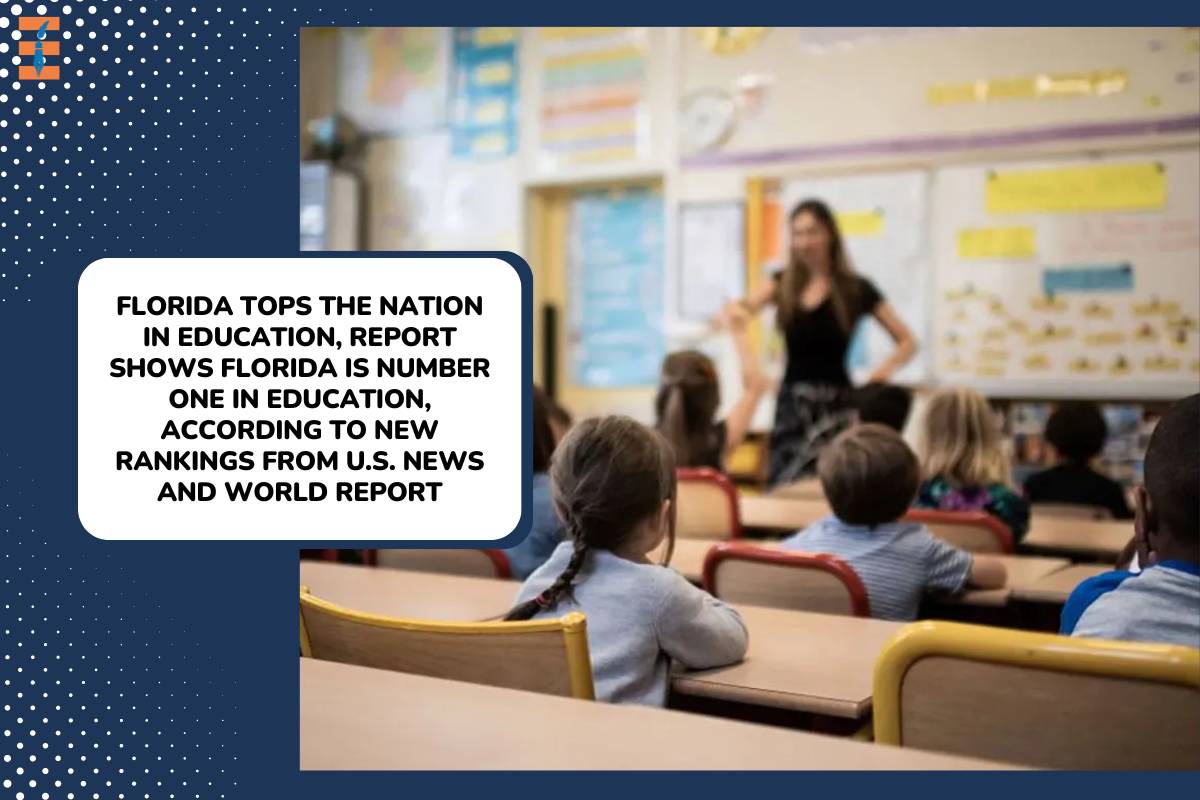
Florida Tops the Nation in Education, Report Shows Florida is Number One in Education, According to New Rankings from U.S. News and World Report
In a recent announcement by US News and World Report, Florida has clinched the top spot as the leading state

The Transformative Power of Online Early Childhood Education
There is a major move towards digital platforms in shifting the niche of early childhood education (ECE) in this fast-changing

Bridging the Education Divide: Navigating Polarized Debates and Building Trust with Conservative Communities
In the complex landscape of education, where ideologies often clash, bridging the gap between differing viewpoints has become paramount. Recent

Unlocking Success: Exploring the Most Affordable MBA Programs
In the current job market, one may benefit from pursuing an MBA in order to get ahead in their work

Florida Holds Top Spot in National Education Ranking; Governor DeSantis Disputes Reasons
In a recent report by U.S. News & World Report, Florida has once again claimed the coveted title of the
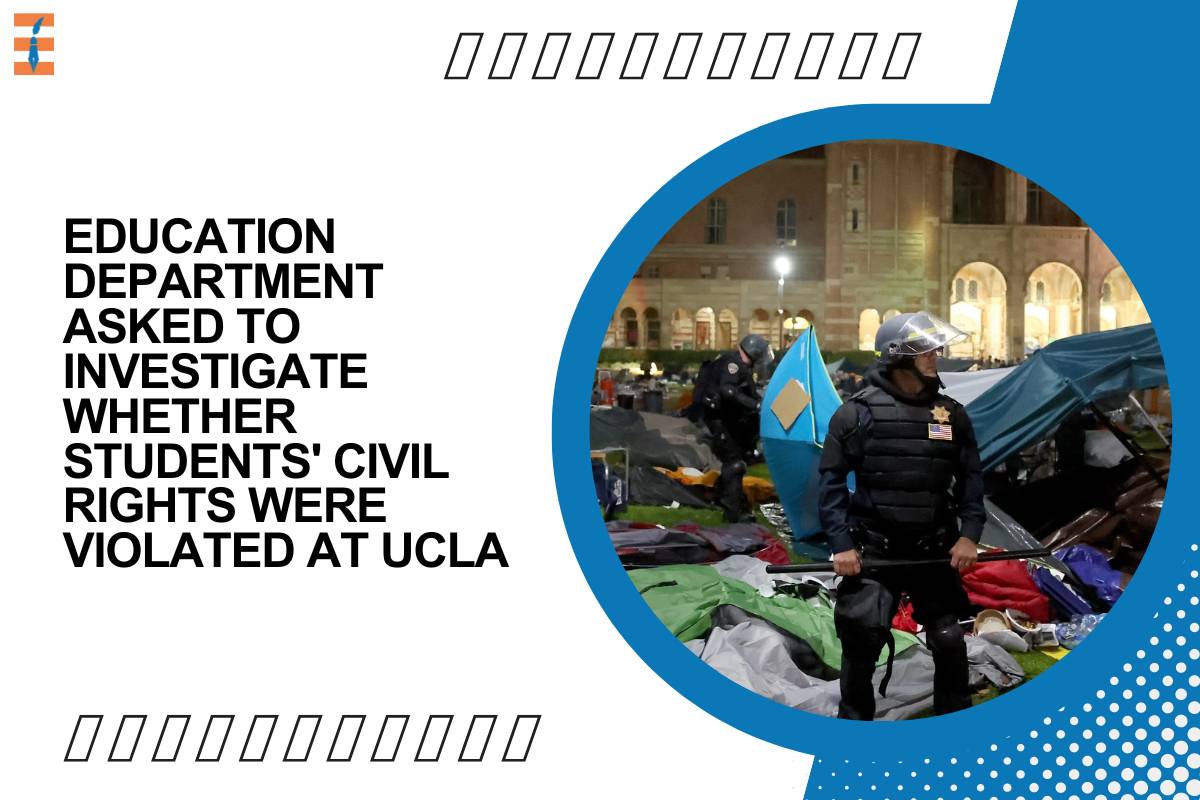
Education Department Asked to Investigate Whether Students’ Civil Rights Were Violated at UCLA
Source-NBC Los Angeles The U.S. Department of Education has been called upon to investigate potential violations of civil rights at
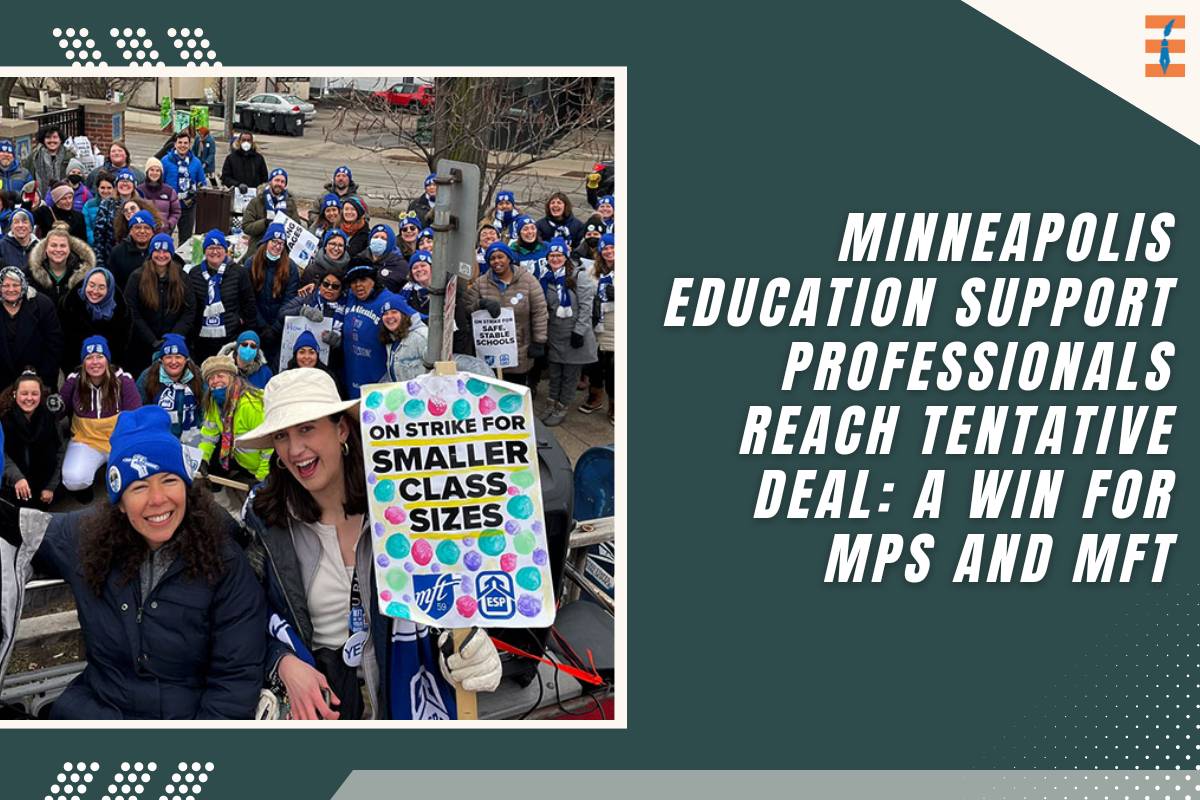

Minneapolis Education Support Professionals Reach Tentative Deal: A Win for MPS and MFT
Source- People's World Minneapolis, MN - The Minneapolis education community breathed a sigh of relief as Minneapolis education support professionals
Join Our Newsletter!
Get the latest education updates delivered to your inbox.

Future Education Magazine is an exceptional source of knowledge and resources for those looking to choose the right path in education. Whether you are a student, parent, educator, or education enthusiast, our magazine is committed to providing you with insightful and valuable content.
- Higher Education
- Professional Courses
- Privacy Policy
- Terms & Conditions
- [email protected]
- +1 (408) 520-9503
- 3277 S White Rd #41 San Jose, CA 95148, United States
Copyright © 2024: Future Education Magazine | All rights reserved.
Created by the Great Schools Partnership , the GLOSSARY OF EDUCATION REFORM is a comprehensive online resource that describes widely used school-improvement terms, concepts, and strategies for journalists, parents, and community members. | Learn more »

A study hall is a period of time set aside during the school day for students to work independently or receive academic help from a teacher or adult. Historically, study halls have been used to fill gaps in student schedules, and students are assigned to a specific classroom at a designated time. Study halls are more common in schools with traditional six- or eight-period schedules, but they are less common in schools that use block scheduling —fewer and longer periods during the school day.
In recent years, many educators have questioned the utility and value of the traditional study hall—an unstructured period of time spent in a lightly supervised classroom. Given that there are only a limited number of hours in the school day, and that many students may be underperforming or not receiving the help they need to succeed academically, many schools are replacing traditional study halls with more structured academic-support periods , advisories , learning labs , and other strategies, or they are abandoning them altogether. The basic rationale is that unstructured study halls squander precious time that could be used more purposefully, either to help students who are struggling academically or to provide more useful, meaningful, and enriching learning experiences.
For related discussions, see acceleration and expanded learning time .

Alphabetical Search
10 Tips For A Successful Study Hall Experience
- May 23, 2023

Are you thinking about heading to the study hall for some focused studying? Do you want to make sure that your time is well-spent and productive?Then this is the right place for you. While study hall can be a useful place for students, it doesn’t work for everyone.
So, to help you succeed, we’ve compiled a list of 10 tips to make the most out of your time in the study hall . By following these tips, you’ll be able to improve your grades and reach your academic goals. So, read on and start using these tips today!
What is Study Hall?
If you’re tired of cramming in the library or feeling distracted while studying at home , you should probably consider the study hall. Study hall is a designated period during the school day where students can complete homework or study for exams. It’s usually held in a quiet and supervised environment like a library or classroom.
Is study hall a class?
However, is it a class? No, it’s not. Study hall is not a traditional class where students receive instruction from an educator, but rather a time for them to focus on their work independently.
Why study hall is good?
So what are the study hall benefits? It allows students to catch up on homework or study, reducing the amount of work they take home. Additionally, study halls offer a space for students to focus and get work done without distractions. You can use this quiet atmosphere to review lectures or work with study groups on projects. You can even get ahead on upcoming courses.

Study Hall Pros and Cons
However, there are pros and cons to study hall. The pros include the mentioned benefits, but some students find it limiting and prefer to work at their own pace. It’s important to weigh both sides and decide whether or not it’s right for you.
For instance, if you’re not motivated , study halls can easily become a delay trap. You might find yourself spending hours chatting with friends or scrolling through your phone instead of being productive. Additionally, some students may feel pressured to maintain high levels of productivity, leading to added stress and anxiety.
Study Hall Rules
Now that we’ve covered the basics, let’s discuss study hall rules. Most schools have specific guidelines for behavior during study hall. These can include no talking, phones on silent, and staying in appointed areas. It’s important to follow these rules so that you can be productive and respectful to others.
10 Tips for Study Hall Experience
With that in mind, we’ve come up with top 10 tips for a successful study hall experience:
1. Come prepared
Make sure to quip yourself with all the materials before going to the study hall. The last thing you want is to be scrambling for the tool you need for doing an assignment . Save yourself the stress and hassle by packing up everything you need.
2. Prioritize the task
Make a list of topics or assignments you want to tackle during your study hall session, and stay focused on completing them. You’ll be amazed at how much you can accomplish in a short amount of time when you have a clear plan.
3. Take breaks in between
Studying can be a tedious task, but taking breaks in between can make all the difference. You could take a stroll in the park, have a snack, or simply sit and soak up some sun. By doing so, you’ll return back to your books feeling refreshed and re-energized.
4. Stay away from social media or music
Social media and music are holding you back from reaching your full academic potential. So, put those headphones down and try to put your phone away, because it’s time to buckle down and read the books.
5. Review notes or study for upcoming exams
We all know it can be hard to remember important information during tests. Well, a useful tip is, review your study notes . The notes will reinforce key concepts and ideas, making it easier to retain the knowledge . Don’t underestimate the impact of review notes – it could be the difference between a mediocre grade and a top grade.
6. Sit in an area free from distractions
Find a spot free from distractions at the study hall. By doing so, you can fully immerse yourself in your studies and maximize your learning results.
7. Utilize online resources
With just a click of a button, you can access countless study resources online. From academic videos to interactive quizzes, there are endless possibilities that can help you have fun with learning .
8. Ask for help if needed
Study halls also encourage interactions with peers. You can ask for help from classmates who are better at certain subjects or form study groups. Plus, you can make new friends in a casual and academic setting like attending study hall activities.
Some study halls are supervised by educators at some schools. This can be a perfect opportunity for students to get extra guidance.
9. Be respectful of others
While all students use the study hall, make sure you keep in mind the needs of others. Respect the value of quiet environment and try to keep noise levels to a minimum.
10. Use study hall to get ahead, not just catch up
Remember to use the power of study hall. Instead of viewing it as a last resort for catching-up, why not use it as an opportunity to get ahead?
Study hall app in 2023
Looking ahead to 2023, we can see that the study hall app has become an essential tool for students everywhere. With its easy-to-use interface and wide range of features, the app has changed the way we study and learn. From schedule study groups to track progress, this app has it all. Whether you’re looking for help with homework or just need some extra motivation, the study hall app can be a good tool.
Wrapping up
Study hall may not be for everyone, but it can be greatly beneficial for students who utilize their time wisely. Follow these study tips and rules to get excellent result. To explore more content, sign up for EDU Passport to not miss out any educational update!
Top Articles
Education without borders: edu passport revolutionizes hiring .

Top 3 Key Time Management Tips for Educational Leaders

How Educators Can Prevent Bullying in Schools

Negative Effects of AI in Education Sector

3 Conflict Resolution Strategies For The Classroom

Share this article
EDU Blog is the perfect place to share your insights and experiences with the world. Apply to become a guest author today!

- EDU Impacts , EDU News , EDU Talks
Navigating the Global Education Industry: Insights into Influential Business Data
- May 10, 2024

- EDU Impacts , EDU Talks , Educators
Celebrating the Unsung Heroes: Why Educator Appreciation Matters
- May 3, 2024

- EDU Impacts , EDU Talks , EDU Tech
Blockchains: A Game-Changer in Education Technology
- April 26, 2024

Spartan Shield

Continuous Coverage
Site Excellence
Story Page Excellence

- Student Life
Balancing act: Measuring the pros and cons of study hall

Encompassing nearly 800 students, study hall is the most populated class taken by students.
Often a filler class for periods that alternate between ‘Day one’ and ‘Day two’, the study hall is one of the best ways students can catch up on work that needs to be completed, or to simply finish schoolwork that would otherwise be impossible to finish outside of class.
However, many have begun to question the benefits study halls have on students, namely the extent to which students actually use the time for work.
Upon closer inspection, it is clear that a large portion of students do not use the time given wisely, instead choosing to spend that time on phones or talking to friends. This generates a lot of noise, making it impossible for others to study and do homework without having to go to another part of the building.
In fact, Junior Amelia Noguera expressed irritation with the frequent disruptions in her learning environment. “I have to say that sometimes it is difficult because of all the noise going on making it hard to concentrate … Sometimes big groups of people get together and it gets a little bit annoying,” She commented.
If students are not using their time wisely, then it is not only a detriment to them, but a detriment to the school. When students are wasting time in a period, they are not only learning anything, but are preventing others from being able to concentrate on their own work.
Noguera states that this lack of focus is one of the reasons why study hall proves ineffective. “People waste their time… in the afternoon they have the opportunity to do other things without having to think about homework or studying… If they used the time that they were given then it would affect them and the people around them in a more positive way,” she noted.
The extent to which students waste their time in study hall makes it easy to argue about getting rid of the class entirely. However, there are some major benefits of having a study hall between classes.
For one, having an in-class study hall gives students the ability to take an extra break from school. High school students spend a ton of time studying and doing extracurriculars , which leads to a noticeable drop in their sleep schedule. Offering up a study hall for students can be beneficial to helping students alleviate their stress during their time at school.
In fact, Study Hall Monitor Jim Wessel reflects how the purpose of study hall goes beyond studying. “It is designed to give students options; it’s a combination of kids getting a mental break away from class. It is a time for kids to do homework, it is a time to get a makeup [test] done, go to the library, and also hang out with friends. It is a causal study hall,” he noted.
For many, the openness of study halls and the relative buzz makes studying difficult. However, Wessel, offering up a practical solution, believes there are ways to navigate this challenge. “I would go to the mic and I would tell everybody to quiet down, or I would go to that specific table and I would mention it to them; those who have that issue would need to come talk to me so I can know that it is an issue with them and they always have an option to go to the library, as it is much quieter over there,” he emphasized.
The debate surrounding the academic study hall in our school underscores the need for a balanced approach. While many students struggle to use the benefits of study hall to its full potential, it is important to recognize the unique benefits that study hall has to offer.
Study halls provide a crucial break for students amidst demanding schedules, offering them a chance to recharge and manage their academic responsibilities. Moreover, these insights from individuals like Amelia Noguera and Jim Wessel shed light on the unique perspectives surrounding this educational tool.
By fostering a positive learning environment and encouraging proactive communication, our school can improve the efficiency of our study halls so that they are a valuable resource to all students who need it. Ultimately with thoughtful consideration and strategic adjustment, our study halls can play a significant and beneficial role in the education of our school.
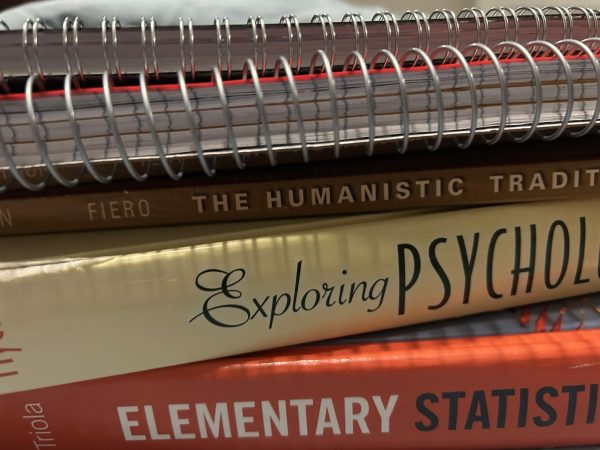
Students learning the importance of memory
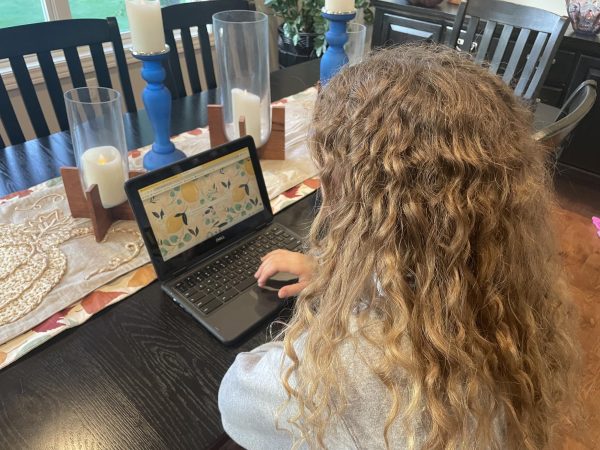
School-issued Chromebooks cause headaches for high school students
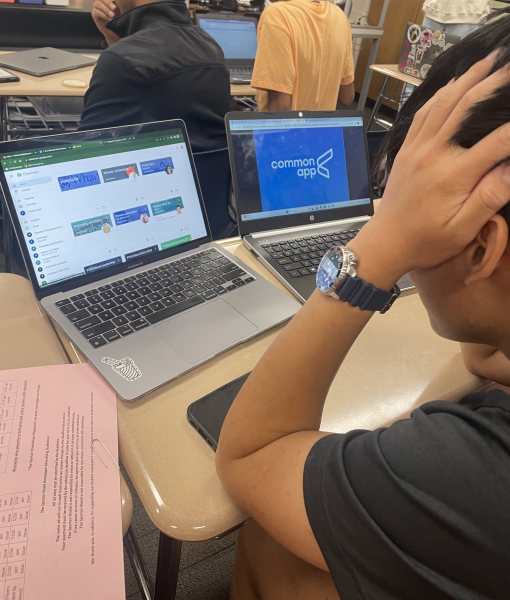
College applications and schoolwork: sources of stress for high school seniors
Your donation will support the student journalists of Pleasant Valley High School in Bettendorf, Iowa. Your contribution will allow us to purchase needed equipment and cover our annual website hosting costs.

The student news site of Pleasant Valley High School
- About our organization
- Submit Letter to the Editor
- Submit Story Idea
- Submit Editorial Cartoon
- Advertise With Us
Comments (0)
Cancel reply
Your email address will not be published. Required fields are marked *

January 13 – February 10, 2024
Study hall is often described as a place where students are encouraged to complete homework, study for upcoming examinations, and makeup missed assignments. Study Hall also becomes a place where we develop, a designated space and time for questions, explorations, and self-development. Explore selections from the Craft Alliance Ceramic Teaching Collection and Craft Library, as well as demonstrations, presentations, and hands-on stations.
Related Events
The boneyard.

Craft Alliance 5080 Delmar Blvd. St Louis, MO 63108
314.725.1177
Craft Alliance is a nonprofit art center dedicated to nurturing creativity and engagement, educating and enriching our community through contemporary craft.
Gallery & Shop Hours
Sunday: Closed Monday: Closed Tuesday: 10 AM – 6 PM Wednesday: 10 AM – 6 PM Thursday: 10 AM – 6 PM Friday: 10 AM – 6 PM Saturday: 10 AM – 6 PM
Office Hours Mon-Friday 9 AM-5 PM

@ Craft Alliance 2023 | All Rights Reserved.
Select your location
- North America English
- Brazil Português
- Latin America Español
Asia Pacific
- Australia English
- Germany Deutsch
- Spain Español
- United Kingdom English
- Benelux Dutch
- Italy Italiano
Resource Center
The Instructure Study Hall
Explore our content library to stay ahead of the learning curve. The Instructure Study Hall is full of the thought leadership articles, customer stories, research reports, videos, infographics, and product overviews that K-12 and Higher Education need to succeed.

Amplify Teaching

Elevate Learning
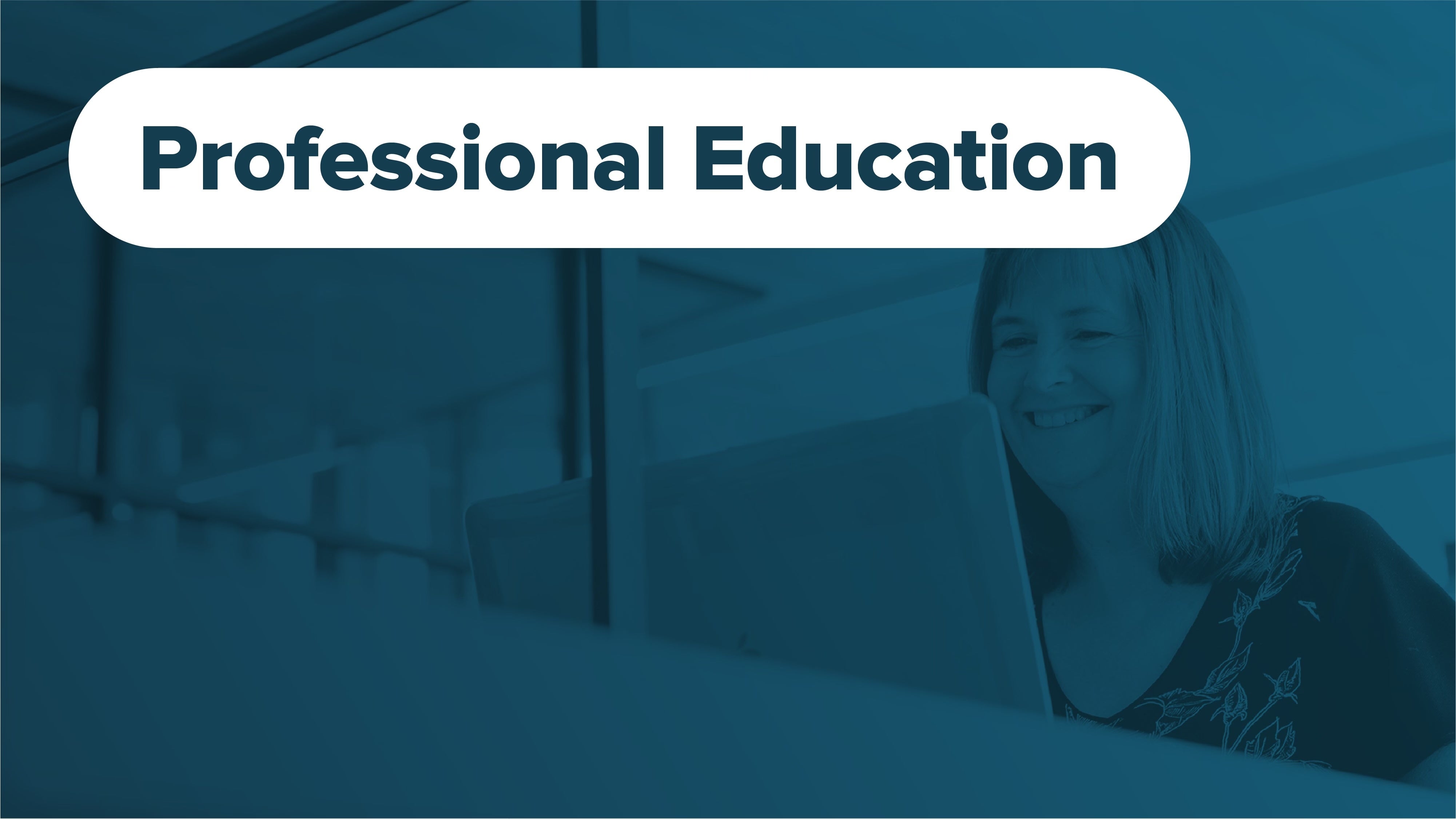
Intensify Impact

Blogs By and For Educators and Admins

First-hand Customer Stories

Insights for Edtech Enthusiasts

Explore Our Learning Ecosystem

Thought Leadership for Every Level

Trends, Tips, and Practical Tidbits
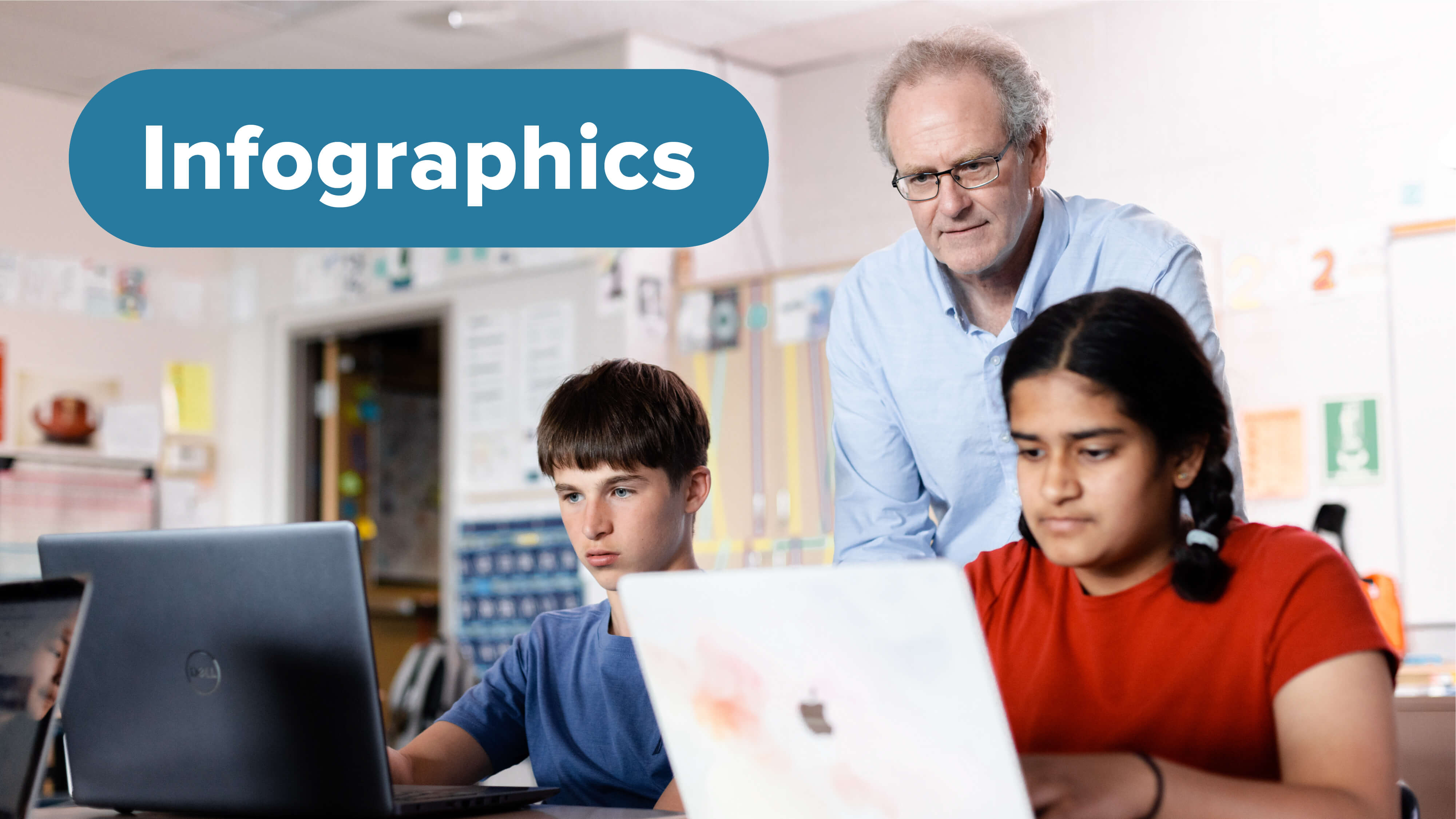
Scannable Info For Quick Takeaways

Best Practices and How-To's
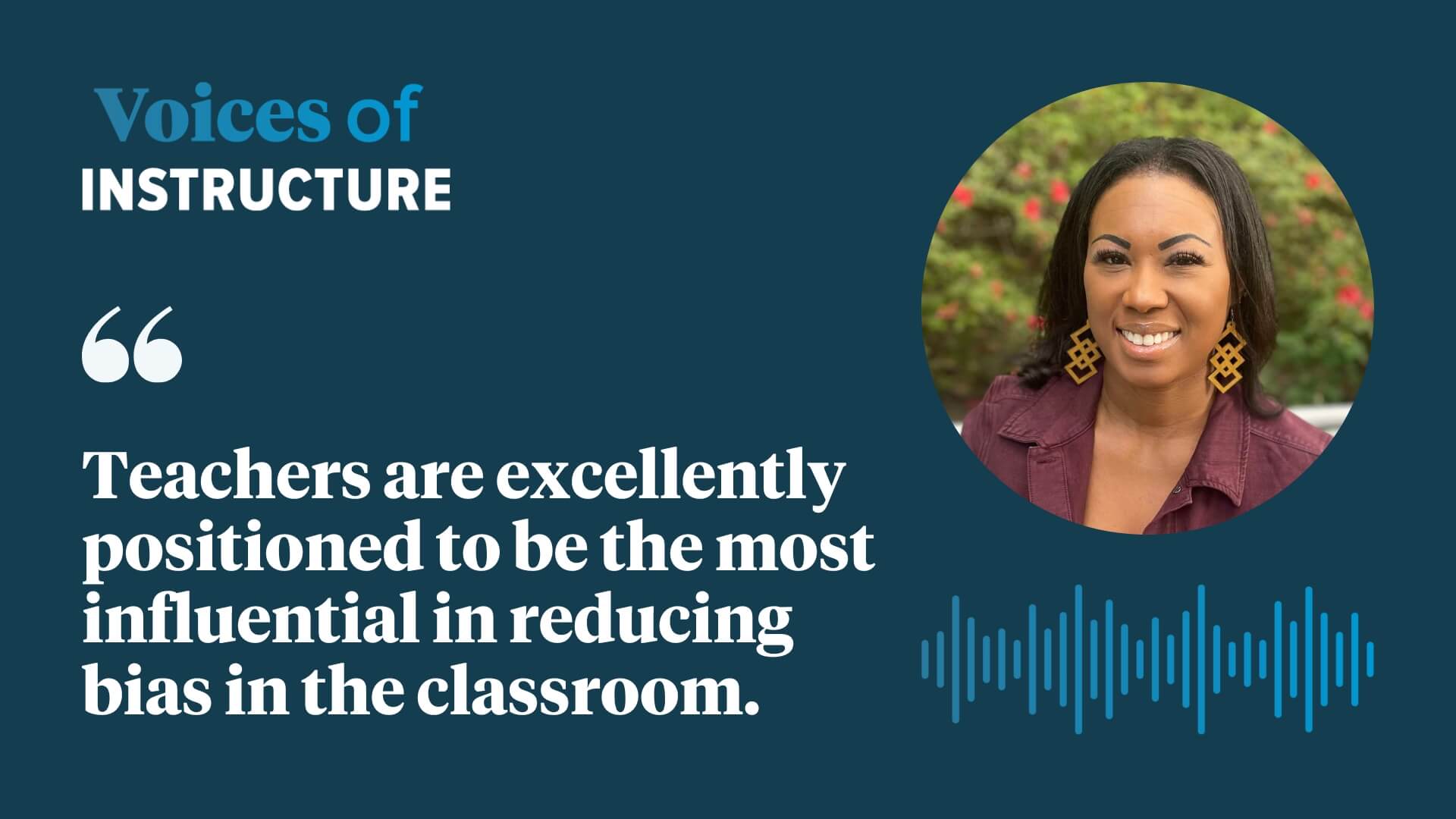
Blog Articles
Reducing Bias in the Classroom

Bridging the Skills Gap with Competency-Based Education
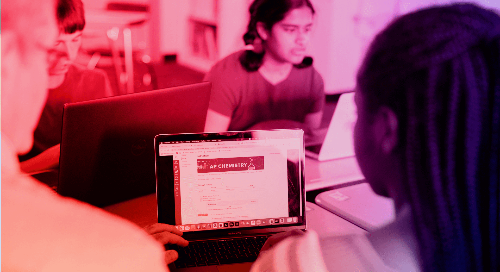
Ebooks & Buyer’s Guides
Your Guide to Choosing a Learning Management System
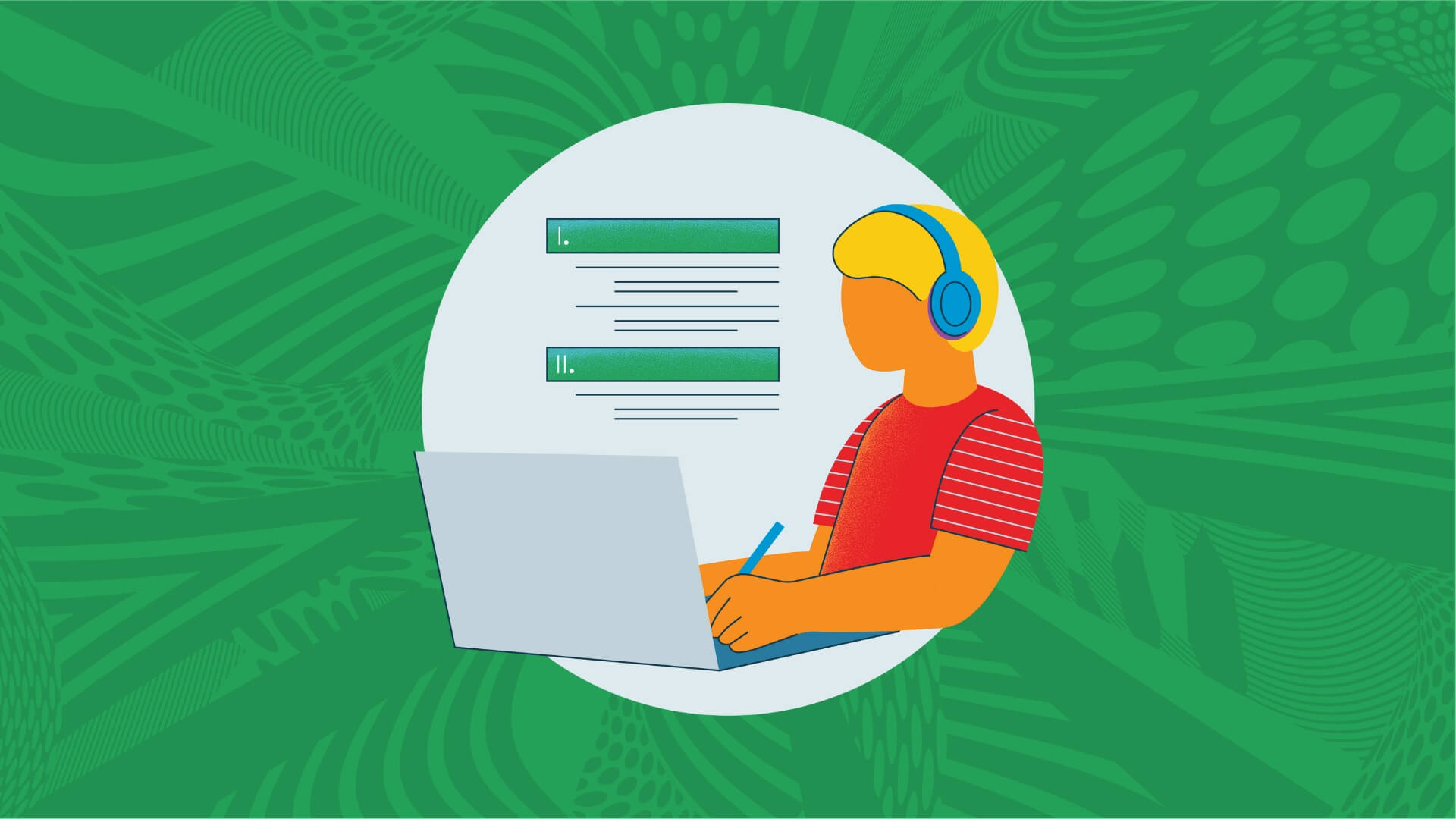
Infographic
5 Reasons to Invest in High-Quality Assessment Content

12 Effective Tier 1 Instructional Strategies

Product Demos & Videos
Boise State University and Canvas
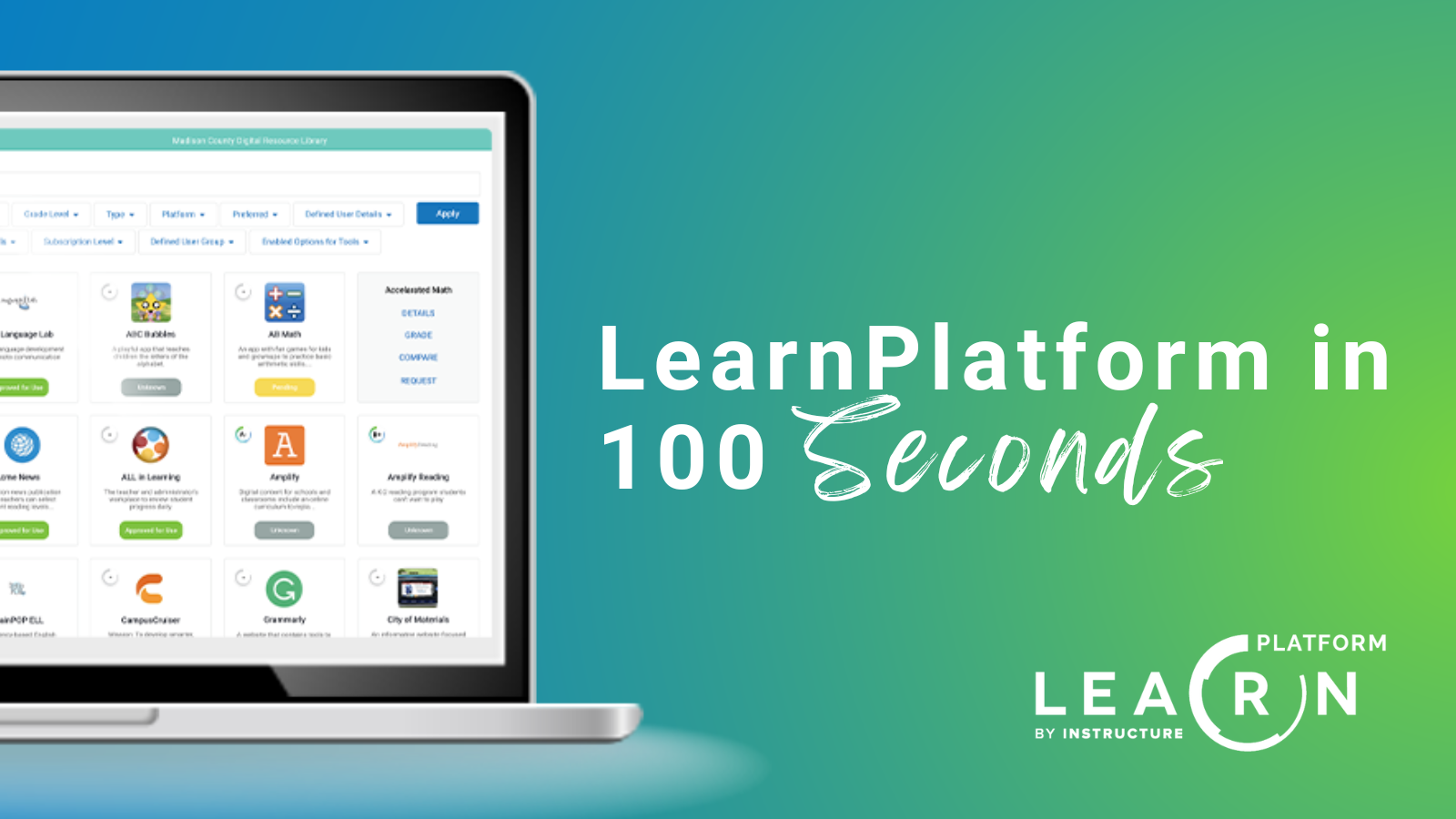
LearnPlatform by Instructure Explained

From Courses to Career: Readying Non-Traditional Students for the Workforce
Applications open for Peer Academic Coaches

Make progress on your academic work!
Our Study Halls come equipped with snacks, beverages, and coffee to help you stay motivated and efficient. Academic Coaches and Peer Learning Consultants are available to answer your questions and offer feedback. Subject and writing tutors may be available by request. Whether you're an undergraduate, graduate, or professional student - study halls are open to you!
Study Halls
Main navigation.
Our Study Halls provide Stanford students with a conducive, quiet working space, with peers, goal-setting and academic consulting (on-demand) to help them progress on their academic work and achieve their goals. Peer Learning Consultants will be on hand to address any questions you may have on time management, managing research workload, making the best use of Excel, or any other related questions you might have! We currently only offer in-person study halls. Virtual Study Halls have been discontinued as we return to in-person programming at Stanford.
Frequently Asked Questions
What can I find at these study halls? -4 Hour blocks of dedicated study time -Short tips for keeping you productive, motivated, organized, and successful -Space for meeting new people in-person -Accountability partners -Periodic check-ins to make sure you are on track to reach your goals -Snacks and beverages including coffee and tea.
Who are these study halls for? Any and all Stanford students. Please avoid grading, emails, social media, and the like during study halls.
When do these study halls take place? Periodically during each Quarter—check your inbox for updated scheduling for a current list of study halls and availability. To be added to our academicskills mailing list, please see the contact information below.
Where do these study halls take place? Our primary location is 408 Panama Mall but depending on availability, the location may change each quarter.
Will there be snacks and beverages? There will be beverages and snacks but NO MEALS at Study Halls. Coffee (including decaf) and tea will be the only provided refreshments. We encourage you to plan ahead of time and bring your own snacks or a meal if you would like to supplement or substitute these snacks
Anything else I should know? Please note that Virtual Study Hall is no longer offered as we begin our return to in-person programming.
Who can I contact for more information? [email protected]
Upcoming In-Person Study Halls
Study Halls hosted by the Peer Learning Consultant Program , and brought to you by the Center for Teaching and Learning. For more information or any inquiries, please email [email protected] .

- Arts and Entertainment
10 Things To Do In Study Hall
Brystol Thomas , staff writer October 4, 2019
We all know that study hall is one of those classes that can feel like it can go on and on. Whenever we don’t have homework, study hall feels pointless and boring. I asked Ali Vaughn, a sophomore in study hall, how she likes it and what she thinks of study hall. She says, “I think we should be able to nap in study hall.” Although you can’t, I would like to help by suggesting ideas that could entertain you during study hall, yet not make you break any rules. After an informative conversation with Ms. Bolling, I was given a copy of the rules so that I could make sure that we don’t suggest any that would break her requirements. I asked what she would like to see of her students and she said, ” I want my students to be able to be productive, yet quiet and respectful.” My goal is to help by giving ideas for students to be eligible to do that.
- Coloring Sheets. Often times there are printed coloring sheets one that shelves underneath the whiteboard. Ms. Bolling also provides color pencils and markers. Although some may call it childish, coloring can actually be a fun and creative thing to keep you occupied if you don’t have work to work on.
- Organize your binders. We have all experienced misplacing papers because our binders or folders are so unorganized. Something to do while you are sitting bored in study hall is to clean out your binders. Make sure that all or your papers are together for a certain class and throw out old papers that are just taking up valuable space.
- Word Searches. Ms. Bolling often times has word searches out, however, if they are all gone then you can even make your own. Obviously you would know where all of the words are, but if you make one and have your friend make one then you both could switch and see who gets done faster. You can make it into a fun contest.
- Read a Book. I know that reading a book can sound boring, but if you find one that you like and that you are very interested in, then it could be fun. If you don’t have a book to read, then you could always make a quick trip to the library and search for a book that strikes your attention. Reading a good book can keep you entertained for a while and can make time go by quicker than you think.
- Teacher Approved Magazine. Magazines can be very intriguing. Whether you are into the latest fashion trends or want to keep up to date on sports, I think that everyone can find a magazine that will suit their needs.
- Count. Counting sounds really boring, but if you want to then you can just get a piece of paper and write down all the numbers. You can make a contest with a friend and see who can count the highest in one class period. Maybe you could get to 1,000 or 2,000. Really, it could go on forever. This is something that will keep your eyes off the clock and keep your focus off of how much time you have left in class.
- Memorize Every Word in the Dictionary. If you think that you actually have enough time, you could always challenge your self by memorizing every word ever. You could take it letter by letter and see how long it takes for you to get through them all.
- Study. This one is self explanatory and pretty obvious, however, there are times when you don’t have a test that you need to study for. When this happens something that you could do it take notes from a class and make sure that you really understand what is going on in that class. This will help you keep your grades up, as well as help study hall go faster.
- Sudoku. These are fun worksheets that will challenge your brain and keep you focused. Ms. Bolling keeps them out by the word searches. Sudokus are things that you can go against a friend with. They usually take a long time so they are a great way to keep your mind occupied during study hall.
- Check out a Chromebook. Even though you can’t play games on them, you can still use them to go on google docs and just write about something. You don’t even need a topic or anything. If you are super bored then maybe you could just write about your day. Or write a note and share it with your friend who is also in that class.
These suggestions should help keep your mind busy and your eyes off the clock. If there is ever an activity you want to do in study hall, don’t forget to check with the woman in charge first- she will love you forever for following the rules and asking. Happy studying!
- ms. bolling
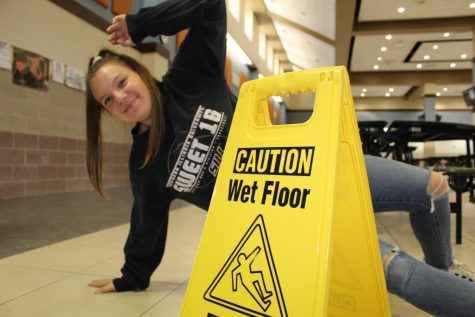
Brystol is a junior at Carterville High School. She enjoys spending her time at home watching Friends or spending time with her friends. Her favorite...

Playing in the Sun

Ghostbusters: Does This New View Point Compare to the Original?

CHS Presents: You’re a Good Man, Charlie Brown

In the Shadows of the Curtain
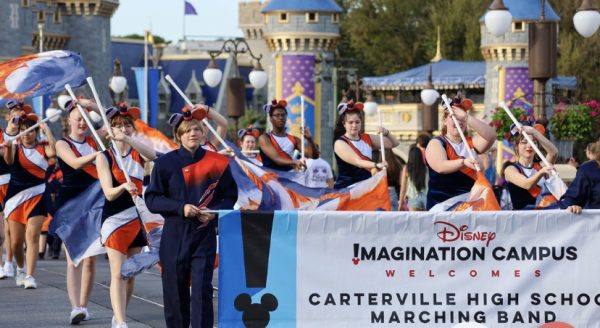
Disney Band Trip

Will This Year Create Cinematic History?

New Percy Jackson: Dog Water?

Movie Review: Mean Girls 2024

Movie Review: “The Hunger Games the Ballad of Songbirds and Snakes”

Movie Review: Five Nights at Freddy’s
The Student News Site of Carterville High School
- Laughing Lions


IMAGES
VIDEO
COMMENTS
Using study hall to promote goal-setting and executive functioning strategies can help foster students' sense of ownership of their learning. ... While there's merit in setting aside time for students to work on assignments during the school day, educators shouldn't be relegated to the role of zookeeper or reduced to mere disciplinarians ...
With such a system, study hall teachers would be able see regularly updated information on a student's progress with assignments and overarching goals. Study hall teachers in schools without such a system are limited in how well they can assist their students. Without a system like this, teachers primarily have only what they see in their ...
For Teachers 5th - 8th. Student learn about the historical significance and local history of Charlestown SC. Students begin with lectures, notes, coloring books and culminate with historical building visits. Find study hall lesson plans and teaching resources. Quickly find that inspire student learning.
Teaching Tactics for Study Hall. The foundation for successful classroom management (in a subject class) is respect for the teacher and for the importance of learning. You gain that respect in your class by being serious about teaching your subject. Your class period is filled with obvious learning activities. There is an expectation for learning.
Structured. Structured study halls have more specific outcomes and goals. The basis of structured study halls is that students are unable to complete work because they are overwhelmed, have poor time management, and lack inner motivation. Frequently, teachers are available to help with difficult homework assignments or concepts that were just ...
Study hall, known as private study, SAS, structured study or free periods in the United Kingdom, ... catch up on missing assignments, or study for tests or quizzes. Sometimes, students also use study halls to converse, make phone calls, text messages, play video games, or otherwise socialize or pursue non-academic topics, though this is ...
Study hall has long been a staple in educational institutions, offering students dedicated time to complete assignments, review materials, and seek additional help. However, reimagining study hall as a powerful tool for promoting student goal-setting can lead to enhanced academic success and personal growth. In this article, we'll explore the ...
Study Hall Procedures 1. The purpose of study hall is for students to complete academic work as a priority and in a quiet, positive, respectable manner. The study hall supervisor is charged with monitoring students so that they are making ... practice assignments in other subject areas will be on hand for those students who need work to ...
A study hall is a period of time set aside during the school day for students to work independently or receive academic help from a teacher or adult. Historically, study halls have been used to fill gaps in student schedules, and students are assigned to a specific classroom at a designated time. Study halls are more common in schools with ...
Plans and writing planning get a bad rap, partly due to how they're used in school. In this episode of Study Hall: Composition, Yumna lays out the best ways ...
9. Be respectful of others. While all students use the study hall, make sure you keep in mind the needs of others. Respect the value of quiet environment and try to keep noise levels to a minimum. 10. Use study hall to get ahead, not just catch up. Remember to use the power of study hall.
Encompassing nearly 800 students, study hall is the most populated class taken by students. Often a filler class for periods that alternate between 'Day one' and 'Day two', the study hall is one of the best ways students can catch up on work that needs to be completed, or to simply finish schoolwork that would otherwise be impossible to finish outside of class.
Study hall is often described as a place where students are encouraged to complete homework, study for upcoming examinations, and makeup missed assignments. Study Hall also becomes a place where we develop, a designated space and time for questions, explorations, and self-development. Explore selections from the Craft Alliance Ceramic Teaching Collection and Craft Library, as well as ...
The Instructure Study Hall is full of the thought leadership articles, customer stories, research reports, videos, infographics, and product overviews that K-12 and Higher Education need to succeed. Research. State of Student Success and Engagement in Higher Education. Research. State of Assessment in K-12 Education.
Review projects (small groups only) when necessary, but otherwise, keep the study hall topics separate from project work Pre-planning Tips Plan, plan, plan When possible, have a classroom location available for those who want a live session Request questions in advance Use quiz results to seed questions in the study hall
a tutored study hall. Four classroom teachers conducted the research. The student groups consisted of 45 middle school students and two high school students. At Site A, five teachers participated in gathering data prior to and during the study hall. At Site B, 14 teachers participated in gathering data prior to and during study hall. Prior to the
Our Study Halls provide Stanford students with a conducive, quiet working space, with peers, goal-setting and academic consulting (on-demand) to help them progress on their academic work and achieve their goals.Peer Learning Consultants will be on hand to address any questions you may have on time management, managing research workload, making the best use of Excel, or any other related ...
These suggestions should help keep your mind busy and your eyes off the clock. If there is ever an activity you want to do in study hall, don't forget to check with the woman in charge first- she will love you forever for following the rules and asking. Happy studying! boredom. ms. bolling. study hall.
Define an argumentative purpose that addresses a specific issue or phenomenon. Adopt an open stance toward competing perspectives when addressing an issue or phenomenon. Learn, implement, and evaluate rhetorical concepts to appeal to audience expectations. Utilize writing technologies that are best suited for specific writing situations and genres.
In 1938, it was granted town status. [citation needed]Administrative and municipal status. Within the framework of administrative divisions, it is incorporated as Elektrostal City Under Oblast Jurisdiction—an administrative unit with the status equal to that of the districts. As a municipal division, Elektrostal City Under Oblast Jurisdiction is incorporated as Elektrostal Urban Okrug.
Elektrostal. Elektrostal ( Russian: Электроста́ль) is a city in Moscow Oblast, Russia. It is 58 kilometers (36 mi) east of Moscow. As of 2010, 155,196 people lived there.
Its a city in the Moscow region. As much effort they take in making nice flags, as low is the effort in naming places. The city was founded because they built factories there.
Elektrostal , lit: Electric and Сталь , lit: Steel) is a city in Moscow Oblast, Russia, located 58 kilometers east of Moscow. Population: 155,196 ; 146,294 ...